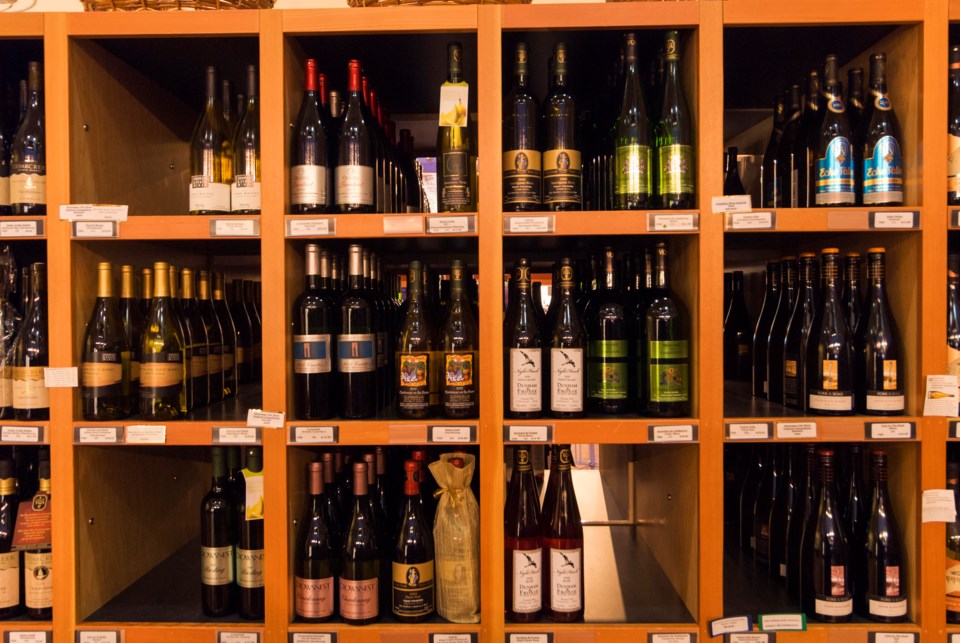Whistler’s hospitality sector can breathe a collective sigh of relief as booze deliveries from the BC Liquor Distribution Branch are set to resume to restaurants, pubs and liquor stores across the province after the union representing public sector employees announced an end to strike action at government warehouses.
“Following a return to the bargaining table, the BCGEU’s Public Service Bargaining Committee has stood down job action at BC Public Service worksites as a sign of good faith,” stated the BC General Employees’ Union in a brief statement Tuesday morning, Aug. 30. “The committee returned to the bargaining table with the BC Public Service Agency (PSA) last Thursday and has made significant progress. The two sides will continue to meet throughout the week, hoping to finalize a tentative agreement.
“The union’s overtime ban has ended—effective immediately—and preparations are underway to stand down picket lines at BC Liquor Distribution Branch locations,” the union concluded, adding no further comment will be made.
Picket lines were set up outside five branch locations in Delta, Richmond and Kamloops, as well as a wholesale customer centre in Victoria, prompting the province to ration the quantity of certain alcohol products consumers could purchase at one time. This has led to supplies running out at private beer and wine stores, BC Liquor Stores, and restaurants and pubs.
“Very good news on the positive resolution and swift conclusion to the strike,” said Eric Griffith, president of the Restaurant Association of Whistler (RAW). “Our stakeholders and those involved are grateful to both sides who were able to swiftly find resolution and help limit any disruptions to business and further impacts to the supply chain.”
Earlier this week, RAW joined the growing chorus of hospitality professionals across the province warning of a looming alcohol shortage, yet another blow to a sector that was particularly hard hit by the pandemic, not to mention rising inflation and continued supply-chain disruptions.
“We purchase [alcohol] from the government and they are our supplier and they kind of dragged us into a fight that isn’t really ours,” said Griffith. “We’ve already been through the ringer the last three years as an industry, facing complete shutdowns, shortages of staff, and impacts on our revenue the whole way through.”
The strike impacted import products in particular, plus all cannabis products for local retailers. Norm Mastalir, GM of the Fairmont Chateau Whistler, said the strike hadn’t significantly impacted the luxury hotel’s event and conference business, as it typically stocks weeks worth of inventory, and was able to pick up specific products from local liquor stores whenever needed.
“So far it’s just been a bit of an aggravation for us,” Mastalir said on Aug. 29, prior to the union’s announcement. The Fairmont GM added that extended job action would likely impact smaller hotels the most.
On the heels of another strike that disproportionately impacted Whistler’s front-line workers—the corridor-wide transit strike that ended in June after 137 days—Griffith is in favour of privatizing B.C.’s liquor distribution system, akin to what Alberta already has in place.
“We have a province nearby, Alberta, which has a privatized liquor distribution system, and there’s no chance of it failing. The privatized sector is never going to shoot itself in the foot by disrupting distribution to its customers,” he said. “It would never do that, so why are we in this situation where we’re dependent on a government monopoly to distribute our alcohol?”
Jordan Sturdy, Liberal MLA for the Sea to Sky, echoed that sentiment, questioning a distribution system he feels is bogged down by red tape.
“I understand the province’s need for revenue, but the system doesn’t function well. It’s a pretty clunky bureaucracy that is not really necessary,” he said. “Why does every piece of cannabis or every bottle of wine need to go into a government warehouse, in this opaque situation?
“It doesn’t make a lot of sense. I’ve never been a fan of this kind of distribution system. It doesn’t breed innovation. It doesn’t service the consumers and it creates situations where exactly this can happen. Every restaurant and hotel in the province of British Columbia is held hostage because of the nature of this system.”
The BCGEU is B.C.’s largest union, representing about 33,000 public-service workers across the province. The union is pushing for wage increases that would cover inflation, which currently stands at eight per cent, well above the roughly 3.5-per-cent increase the province has offered.
The BCGEU’s bargaining committee previously rejected the PSA’s offer of a 10.99-per-cent pay hike over three years, plus a one-per-cent cost-of-living adjustment and a $2,500 signing bonus.
-With files from Graeme Wood


